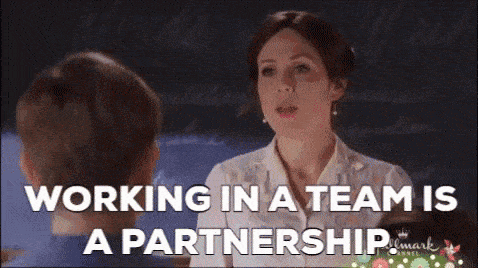
Fixing the hiring manager vs recruiter relationship in tech

Hiring manager vs recruiter. It is a classic odd couple match up in the same league as Tyson vs Holyfield, oil vs water, and cats vs dogs. Why does it have to be that way? Hiring managers need recruiters to find the best tech talent possible. Why are they often pitted against each other?
All too often, the needs and wants of one party don’t align with the needs and wants of the other. Beyond the simple professional cost, this leads to bloated hiring processes, mismatched candidates, and bad hires. But it doesn’t have to be this way. When you calibrate the relationship correctly, hiring managers and recruiters develop a close partnership akin to peanut butter and jelly, puppies and babies, or Butch Cassidy and the Sundance Kid.
By the end of this post, you’ll be able to put the hiring manager vs recruiter conflict to rest by being able to answer,
- Why is there friction between a hiring manager vs recruiter in tech?
- What is a hiring manager?
- What does a recruiter do?
- How to turn “hiring manager vs recruiter” into “hiring manager and recruiter?”
Of course to solve a problem you first need to understand what it is.
Why is there friction between hiring managers and recruiters in tech?
 On the surface, it looks like hiring managers and recruiters should be best buddies. After all, they both have the same goal. Amanda Cole at eTeki defines it as, “Find the best qualified, interested and available talent on the market.” That seems pretty straightforward. Why would there be any issues?
On the surface, it looks like hiring managers and recruiters should be best buddies. After all, they both have the same goal. Amanda Cole at eTeki defines it as, “Find the best qualified, interested and available talent on the market.” That seems pretty straightforward. Why would there be any issues?
The problem stems from the fact that recruiters and hiring managers approach the recruitment process from different perspectives. Even an experienced tech recruiter is not going to have the same understanding of the position being filled that a hiring manager will have. A recruiter who hasn’t been properly briefed can end up unleashing a flood of poorly qualified candidates on the hiring manager.
But, hiring managers in tech are often software developers who need to build their teams. Since they don’t specialize in hiring, they don’t always effectively communicate the role that they are after.
As Cole points out, this can lead to a number of problems. Hiring managers, often already behind on projects, feel they’re too busy to get deeply involved with the technical recruiting process. They think that they can put everything on the recruiter. The result is that recruiters often face unrealistic expectations throughout the process, leading to sub-optimal results.
A big part of this is because the other side doesn’t always understand what they’re counterparts’ role is in the process. Before going further, we need to understand the players in the hiring manager vs. recruiter relationship.
Key takeaways:
- You’ll find the same goal with a hiring manager vs recruiter
- Hiring managers don’t always participate in the process as much as they should
- If the recruiter doesn’t have the right information, they can source bad candidates
What is a hiring manager?
Imagine you’re working on a development team. The project you are working on is a priority. Clearly, you are going to need more people if you’re going to get it done in time. Maybe you just had a team member leave. Your company might also be looking to scale their operations. On top of what you normally do, you are now tasked with finding a new qualified developer. Congratulations! You’re now a hiring manager.
Hiring managers are essentially managers or team leads who get involved in the hiring process. Some can be very good at hiring the right people. Still, recruitment isn’t their primary focus. Even within the recruitment process, they have a number of different responsibilities including,
- Technical skills screening
- Onboarding
- Performance evaluation
- Retention strategy
- Candidate experience
Most importantly according to LinkedIn, the hiring manager has the ultimate say over who they want to fill the position and what kind of salary to offer.
 The hiring manager might lack recruitment experience. But they more than make up for this lack in their understanding of the field and the role in question. In fields like tech, this means that they know exactly the sort of skills and technologies they want from a developer and how the candidate will fit into the team. Unlike a recruiter who works off of a job description, a hiring manager can better determine if somebody who doesn’t necessarily match the specs will be a good match.
The hiring manager might lack recruitment experience. But they more than make up for this lack in their understanding of the field and the role in question. In fields like tech, this means that they know exactly the sort of skills and technologies they want from a developer and how the candidate will fit into the team. Unlike a recruiter who works off of a job description, a hiring manager can better determine if somebody who doesn’t necessarily match the specs will be a good match.
Key takeaways:
- A hiring manager is the role which has the ultimate say over hiring and salary negotiation
- A hiring manager is the best judge of what makes a good candidate
What does a recruiter do?
If a hiring manager is a generalist, someone balancing recruitment with the other responsibilities they have, a recruiter is a specialist. Whether they work at the company or are brought in from the outside, their job is to magnify the hiring manager’s search.
Natalie Khay, Analyst @ZipJob.com describes their responsibilities as including,
- Sourcing candidates for a position
- Screening resumes and selecting highly qualified individuals
- Conducting initial interviews
- Assisting the hiring manager and providing recommendations
A recruiter is tasked with doing the things that the hiring manager simply doesn’t have time to do. Ideally, the recruiter should send the hiring manager a steady stream of qualified candidates.
Most recruiters are not specialists in the exact field that they’re recruiting for. Instead, they are specialists in the field of hiring. Even the best tech recruiters couldn’t come up with a job description on their own. Where recruiters add value is by bringing extra information that the hiring manager wouldn’t normally have access to.
This information includes what other companies are doing to attract talent, what kind of compensation is being offered, what other additional perks are being added to offers, and what candidates look for in a company.
A particular value they can bring to tech recruiting is a large network of passive candidates that they can draw on. When used properly, they can be a tremendous asset to the hiring process. But for the hiring process to work, the two sides need to come together.
Key takeaways:
- Recruiters source candidates and do initial screenings/interviews
- Recruiters bring specialist knowledge about the labor market and have cultivated a passive network of candidates they can draw on
How to turn “hiring manager vs recruiter” into “hiring manager and recruiter”
 Image source: Sebastian Herrmann on Unsplash
Image source: Sebastian Herrmann on Unsplash
When the players in the recruiting process come together to help each other out, the results can be fantastic. Here are some key ways to make sure that will happen.
Set expectations early on
Fortune favors the prepared and this is never truer than in the recruitment process. But a common complaint that separates hiring manager vs recruiter is that hiring managers don’t provide enough information to recruiters to work with. The more information the hiring manager provides, the better the recruiter will be able to go out and source good candidates.
A good recruiting process usually starts with an intake session. At this meeting, the recruiter and the hiring manager work out exactly what they are looking for and how the process will work. As Glassdoor points out, the hiring manager should not miss this meeting. If they do, all the recruiter will have to go on is the job description. As The Muse points out, there are other essential details that a recruiter needs. These include,
- Determining “Must Haves” vs “Nice to Haves”
- Identifying target companies and industries
- Laying out the interview process
- Scheduling follow-up meetings
Of course, it takes two to tango and both actors are responsible for ensuring a good hiring process. The Predictive Index suggests that the recruiter should go into the intake session looking for information they need to make a more effective job search. This means asking questions like,
- What does this person need to know how to do in order to succeed in this position?
- What are the key skills required for this position?
- What can/can’t we train?
- What does success look like three months down the road?
- What would this person be doing that would make me say they’re crushing it in this job and I’m really happy with my hire?
A successful intake session
When both sides go into the recruitment process trying to make it work, there is a higher chance of success. eTeki describes an example of how this meeting can go. The hiring manager should prepare a one-page sheet that builds on the job description. This should include the pain points the hire will solve, their desired skills, and what the most important skills are there looking for.
For tech recruiters, this is a good time to establish exactly what technologies are sought after and the types of projects the candidate will be working on. Then in their meeting, the recruiter has the chance to ask detailed questions about each of the points in the description.
Once the scope of the project has been established, the recruiter and the hiring manager can agree on a timeline that is both realistic and fits the hiring manager’s needs. But it is not enough to simply make a plan and run with it. Things change and for the relationship to work, the hiring manager and recruiter need to be able to change with it.
Key takeaways:
- The intake session is essential for laying out the parameters of the recruitment drive and the specifics of the candidate you hope to recruit
- The hiring manager should prepare a one-pager of information about the candidate and position
- The recruiter should be prepared to ask detailed questions to the hiring manager
Develop a dynamic partnership
 The hiring manager and the recruiter should touch base on regular basis. They should be prepared to make adjustments depending on how the recruitment process is going. They should also seek information from their counterpart when it’s not freely given. Workable has looked at the different types of scenarios that hiring managers and recruiters can run into and how they can be solved.
The hiring manager and the recruiter should touch base on regular basis. They should be prepared to make adjustments depending on how the recruitment process is going. They should also seek information from their counterpart when it’s not freely given. Workable has looked at the different types of scenarios that hiring managers and recruiters can run into and how they can be solved.
- If a hiring manager doesn’t provide clear job requirements, it is up to the recruiter to research the position both internally and externally before going back to the hiring manager with specific questions.
- When there’s not a lot of time to fill the position, it’s important to identify potential deal-breakers early and engage in the entire recruiting process
- To avoid mismatched expectations between a hiring manager and recruiter, they need to clearly articulate nice to haves versus must-haves. As we spoke about before, they should routinely update each other on the progress of the search
- The recruiter should be able to share their expertise with the hiring manager. These include tips for interviewing candidates, creating a better candidate experience, and fighting bias in the recruiting process
Key takeaways:
- The recruiter and the hiring manager should be prepared to adjust their plan depending on the success of the search
- Regular meetings are essential to get updates on the recruiting process
Display candor
As you can tell, one of the main themes that run through this relationship is that effective recruiters and hiring managers open lines of communication. You’ll find them up front and direct about their needs and the progress they are making. They have no problem speaking to each other constructively the moment an issue arises rather than letting it fester.
This approach has seen great success at Netflix. The company stresses candor in the recruiting process. Their hiring managers regularly give constructive critiques of how recruiters pitch, describe the company, and source candidates. On the other side, recruiters coach hiring managers on how they communicate with candidates.
As hiring manager Chris Saint-Amant says,
The recruiting team is really engaged with our teams so they can ask the right types of questions about, “Hey, I thought this is what your team was looking for’ or ‘this is the direction you’re heading in now, is this person really going to add to that?”
A partnership where the recruiter and the hiring manager can speak to each other frankly has a much better chance of producing successful candidates.
Key takeaways:
- Both sides should be upfront about their needs
- Constructive critiques can help each party do a better job
The bottom line
The hiring manager vs recruiter relationship in tech has been a fractious one but it doesn’t need to be. It is in the interest of both parties to work together to produce the best candidates. To do that, it is important that a partnership is formed at the beginning of the process. This partnership should be maintained over the course of the recruitment process.
Both sides should play to their strengths and knowledge helping the other one succeed. By creating a frank exchange of ideas, recruiters and hiring managers will be able to find better candidates more efficiently.
Image source: LinkedIn Sales Navigator on Unsplash




